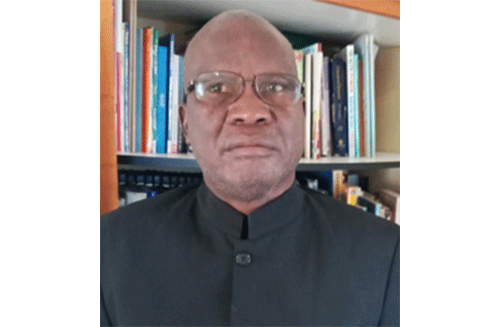In the Holy Book, King Solomon, the wisest person whoever lived in the third chapter of Ecclesiastes states that there is time for everything in the universe.
Going along with dictum, the Mafwe of the Zambezi region has a saying, which echoes this type of wisdom, “mazyuba, kaaliyi kambami”.
The expression simply and literally means that days cannot squarely fit on top of another meaning that days cannot be the same, which further means that events are different as per day.
There have been historic events over a length period of time – only to be replaced by another.
Unfortunately, our political leaders have been failing to pass the test of the historical past and failed to learn the mistakes made by their counterparts over the years.
Africa passed through many phases of development, slavery and colonialism, but the current brood of post-colonial nations has failed to read the signs of the times, and consequently found the historical reality staring them in their faces.
Lack of planning and share ignorance usually find our leaders not prepared for any political eventuality and ultimately lends them in awkward situations.
Political leaders should have taken seriously the survival of their people and the natural resources.
Africa has been regarded as a Dark Continent, as Conrad’s book, titled, Heart of Darkness, epitomises the people and continent of Africa during that period.
Slavery then set in – and despite the fact that the Trans-Atlantic slave trade took place between the fifteenth and nineteenth centuries, the narration of the descendants of the victims of slavery, according to Simpson (2004), still expressed elements of fear, suppression and emotions.
After the period of slavery came colonialism, where colonisers arrogantly saw colonial Africa as a submissive object, which attracted white anthropologists, who came to study the so-called ‘primitive race’.
Africans were regarded as mere beetles or objects to be looked at under a microscope and examined for unusual features.
Hochschild (1998) maintains that Ranulf Higden (a Benedictine monk for that matter), who mapped the world about 1350, claimed that Africa contained one-eyed people, who used their feet to cover their heads, while a geographer in the fourteenth century announced that Africa had people with one leg, three faces and the heads of lions.
In 1459, an Italian monk, Fra Mauro, declared Africa the home of the roc, a bird so large it could carry an elephant through the air.
Ngugi wa Thiong’o (1981), a renowned Kenyan scholar and world acclaimed writer, asserted that the process of colonial education annihilated a people’s belief in their names, languages, environment, heritage of struggle, unity, capacities and ultimately in themselves.
He went on to say that colonial education made them see their past as one wasteland of non-achievement, and made them want to distance themselves from that wasteland.
In the process, colonial education created a sense of wanting to disassociate themselves with native heritage – and this affected the individual and the sense of self-confidence.
Equally, during the colonial period (1885 – 1989), Namibians witnessed many years in which their lives were dehumanised by the German and South African colonial masters.
During this period, black Namibians were declared non-existent (fictional or imaginary human beings or mere objects), and their land declared uninhabited in keeping with the European racist arrogance, and colonisers felt that democracy and rational thinking were not suited for Namibians (Moleah, 1983).
Contrary to this perception, in Africa, the land belongs to the communities, and it is used for crop production, hunting ground or source of wood for building and other materials.
Then came the period of liberation struggles, which ushered in a period of nationhood and Uhuru.
Many nationalists were apprehended and incarcerated for many years.
Upon the attainment of independence, many countries came up with changes of policies and initiated developmental plans.
After some years into nationhood, then came the period of one partyism, which, in many cases, disappointed the advocates of democracy.
One partyism saw high levels of human abuses, which was later disrupted by the advent of militarism in which more abuses were manifested.
Africa later went back to multipartyism, which is being challenged by militarism in some quarters.
In Namibia, the current period manifests a situation in which many political parties are vying for the presidency.
With less than three million people, Namibia boasts of about sixteen political parties, of which many of them have very little or nothing to offer.
Nevertheless, it is time for all political parties to unite and forge ahead with unity of purpose for the benefit of all Namibians.
Notwithstanding this situation of many political parties, the hallmark of these leaders have been egocentric, instead of delivering the services, as promised during the electoral campaigns, to alleviate the plight of the voters.



